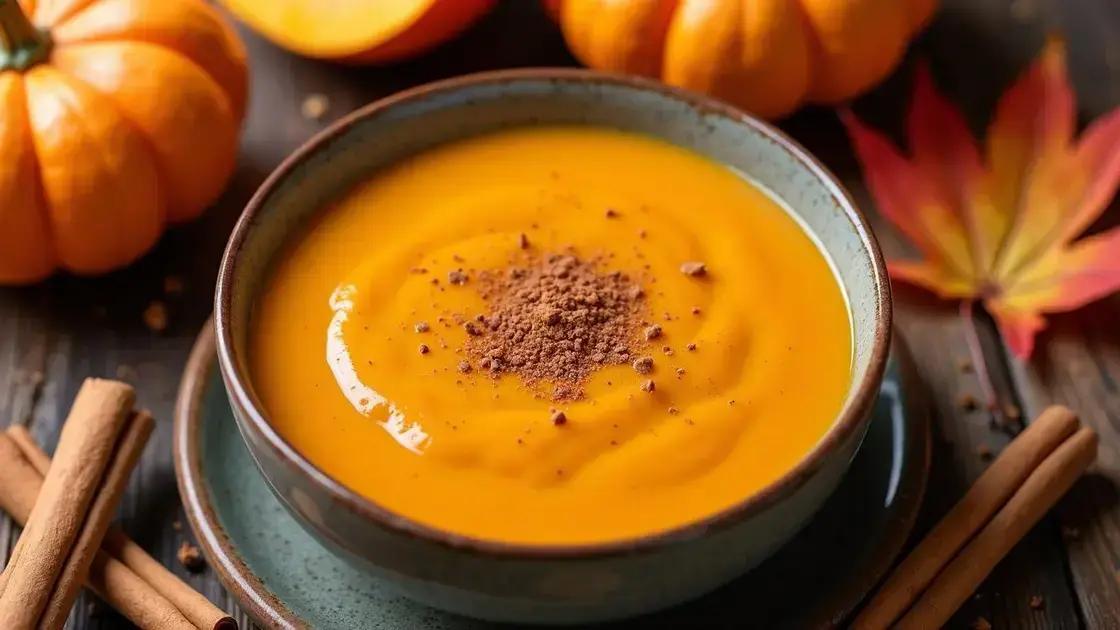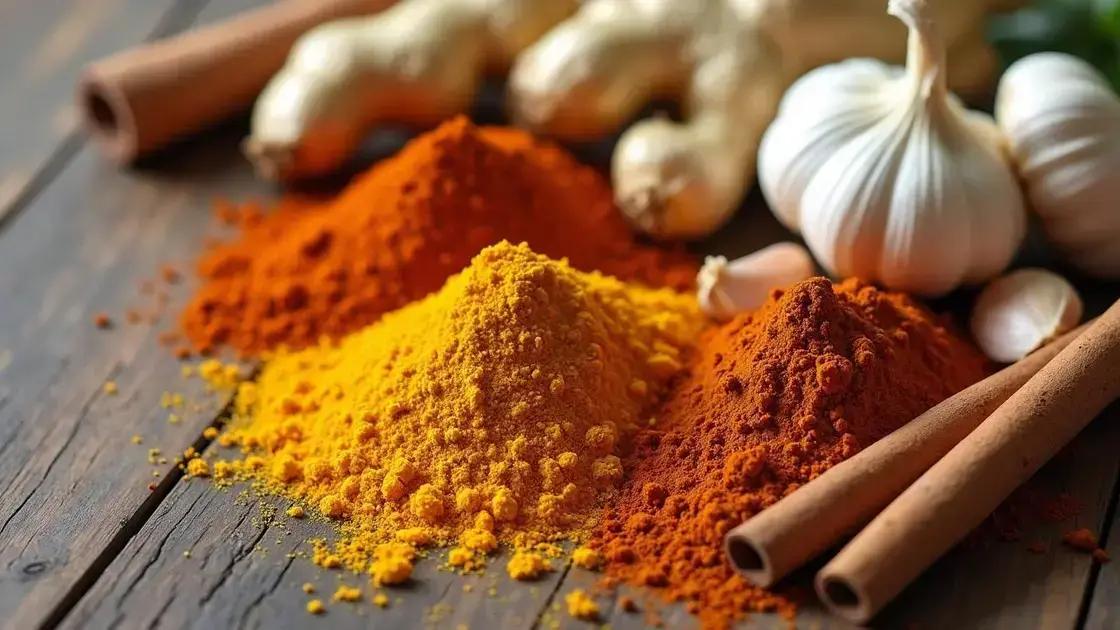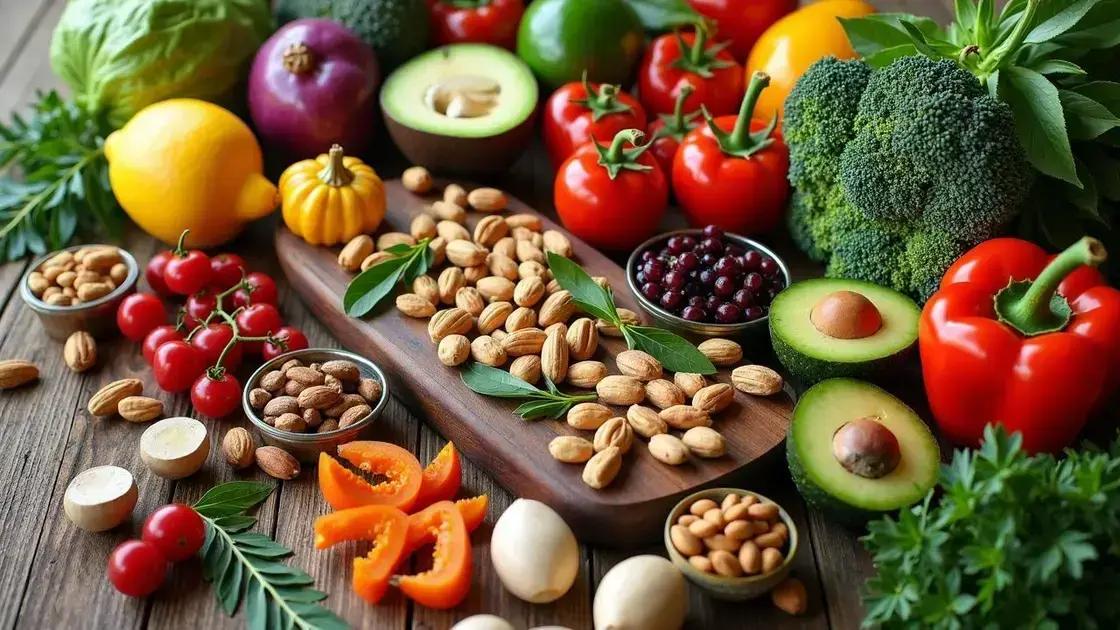Pumpkin and cinnamon soup recipes not only offer a delicious meal option but also provide numerous health benefits that support hormonal health, thanks to the nutrient-rich ingredients.
Welcome to the world of wellness with our delicious Pumpkin and Cinnamon Soup Recipes! Packed with nutrients, pumpkin and cinnamon not only satisfy your taste buds but also support hormonal health. These ingredients are known for their anti-inflammatory properties, making them ideal for those looking to enhance their well-being naturally. In this post, we will delve into the fantastic benefits of these ingredients, share easy-to-follow recipes, and offer additional tips on how to incorporate these flavors into your diet for optimal hormonal balance.
Health Benefits of Pumpkin and Cinnamon

Pumpkin and cinnamon are not only delicious but also packed with health benefits that support hormonal health. Together, they create a warm and comforting soup that nourishes both body and mind.
Rich in Nutrients
Pumpkin is a fantastic source of vitamins like Vitamin A, which is important for vision and immune function. It also contains Vitamin C, promoting skin health and assisting in wound healing. Additionally, pumpkin is rich in fiber, which aids digestion and helps to maintain a healthy weight.
Hormonal Balance
Cinnamon is known for its ability to regulate blood sugar levels, making it beneficial for hormone balance. By stabilizing blood sugar, cinnamon can help alleviate mood swings often linked to hormonal fluctuations.
Anti-Inflammatory Properties
Both pumpkin and cinnamon have anti-inflammatory properties that can help reduce the risk of chronic diseases. Inflammation can disrupt hormone production, so incorporating these ingredients can support overall hormonal health.
Antioxidant Benefits
Pumpkin is loaded with antioxidants, which protect your cells from oxidative stress. Antioxidants play a crucial role in maintaining hormonal balance by reducing free radicals in the body. Similarly, cinnamon contains polyphenols that contribute to its health-boosting properties.
Easy Pumpkin Soup Recipe

Making a delicious pumpkin soup is easy and perfect for enhancing hormonal health. Follow this simple recipe to create a warm dish that combines flavor and nutrition.
Ingredients
- 2 cups of cooked pumpkin (fresh or canned)
- 1 medium onion, chopped
- 2 cloves of garlic, minced
- 2 cups of vegetable broth
- 1 teaspoon of ground cinnamon
- 1/2 teaspoon of nutmeg
- Salt and pepper to taste
- 1 tablespoon of olive oil
- Cream for garnish (optional)
Instructions
- In a large pot, heat the olive oil over medium heat. Add the chopped onions and garlic, and sauté until soft.
- Stir in the cooked pumpkin and pour in the vegetable broth, mixing well.
- Add the cinnamon, nutmeg, salt, and pepper. Bring the mixture to a gentle boil.
- Reduce the heat and let it simmer for about 15 minutes to blend the flavors.
- Using an immersion blender, purée the soup until smooth. If you don’t have one, carefully transfer the soup in batches to a blender.
- Adjust seasoning to taste and serve warm. If desired, drizzle with cream for a richer flavor.
This easy pumpkin soup recipe not only delivers on taste but also adds valuable nutrients to your meal, contributing to better hormonal health and wellness.
Spicing Up Your Hormonal Health

Spicing up your hormonal health can be as easy as adding certain flavors to your meals. Many spices not only enhance the taste of food but also support hormonal balance and overall health.
Cinnamon
Cinnamon is a key ingredient in your pumpkin soup and a powerful spice for regulating blood sugar levels. By keeping blood sugar stable, cinnamon helps prevent spikes that can lead to hormonal fluctuations. It also has antioxidant properties that protect your body at the cellular level.
Turmeric
Another fantastic spice is turmeric. This golden spice contains curcumin, known for its anti-inflammatory effects. Inflammation can disrupt hormonal balance, so adding turmeric to your recipes can promote better health. Consider a pinch in your pumpkin soup for a warm flavor and health boost!
Ginger
Ginger is great for digestion and can help alleviate nausea. It can also improve circulation and reduce inflammation, which are essential for hormonal health. Add freshly grated ginger to your soup or a cup of ginger tea to enhance your wellness routine.
Other Flavorful Options
Don’t forget about other spices like black pepper, cayenne, and garlic. Black pepper enhances absorption of nutrients, and cayenne can rev up your metabolism. Garlic has numerous health benefits, including antimicrobial properties. These spices can be easily added to your meals to keep them flavorful and beneficial.
Using these spices in your cooking not only boosts flavor but also supports hormonal health, making your meals both delicious and nutritious.
Nutrition Tips for Hormonal Balance

Achieving hormonal balance is crucial for your overall health. Here are some nutrition tips to support your hormonal health while enjoying delicious foods.
Focus on Whole Foods
Choosing whole foods, such as fruits, vegetables, lean proteins, and whole grains, is essential. These foods are nutrient-dense and provide the vitamins and minerals needed for hormone production. Aim to fill your plate with a variety of colors to ensure a broad spectrum of nutrients.
Healthy Fats
Incorporate healthy fats into your diet. Foods like avocados, nuts, seeds, and olive oil are excellent choices. These fats are important for hormone production and can help reduce inflammation in the body.
Reduce Sugar Intake
Limiting added sugars is essential for maintaining hormonal balance. High sugar intake can lead to insulin resistance, which may disrupt hormonal balance. Instead, try natural sweeteners in moderation, like honey or maple syrup.
Stay Hydrated
Drinking enough water is vital for overall health, including hormone balance. Proper hydration aids in digestion and nutrient absorption, which supports hormone regulation. Aim for at least 8 cups of water a day, and consider herbal teas for added benefits.
Regular Meal Timing
Establishing a regular eating schedule can help maintain stable blood sugar levels. Try to eat small, balanced meals throughout the day, rather than long gaps between meals. This can support your metabolic health and, in turn, assist hormone balance.
Include Fiber-Rich Foods
Adding more fiber-rich foods to your meals can improve digestion and help regulate hormones. Foods such as fruits, vegetables, whole grains, and legumes are rich in fiber and can promote a healthy gut, which is essential for hormone health.
Bringing It All Together for Hormonal Health
Incorporating pumpkin and cinnamon into your diet through delicious recipes like pumpkin soup can greatly benefit your hormonal health. These ingredients, along with other nutritious foods and spices, offer a wide range of health benefits that support hormonal balance.
By focusing on whole foods, healthy fats, and fiber-rich options, along with proper hydration and meal timing, you can create a solid foundation for optimal hormonal health.
Your journey to better hormonal balance starts with the right nutrition, which not only improves your well-being but also enhances your mood and energy levels. Don’t hesitate to explore these recipes and nutrition tips as you strive for a healthier lifestyle.
FAQ – Questions about Pumpkin and Cinnamon for Hormonal Health
What are the health benefits of pumpkin for hormonal health?
Pumpkin is rich in vitamins and minerals, including Vitamin A and C, which support hormone production and overall health.
How does cinnamon help with hormonal balance?
Cinnamon helps stabilize blood sugar levels, reducing insulin spikes and promoting a more balanced hormonal system.
Can I easily make pumpkin soup at home?
Yes, making pumpkin soup at home is simple! Just follow a basic recipe that includes pumpkin, onions, garlic, and your favorite spices.
What other spices can help improve hormonal health?
Spices like turmeric, ginger, and black pepper are beneficial for hormonal health and can be easily added to your meals.
How can I maintain hormonal balance through nutrition?
Focusing on whole foods, healthy fats, fiber, and proper hydration are key components in maintaining hormonal balance.
Is it necessary to avoid all sugar to maintain hormonal balance?
While it’s not necessary to avoid all sugar, reducing added sugars can help prevent insulin resistance and support hormonal health.













